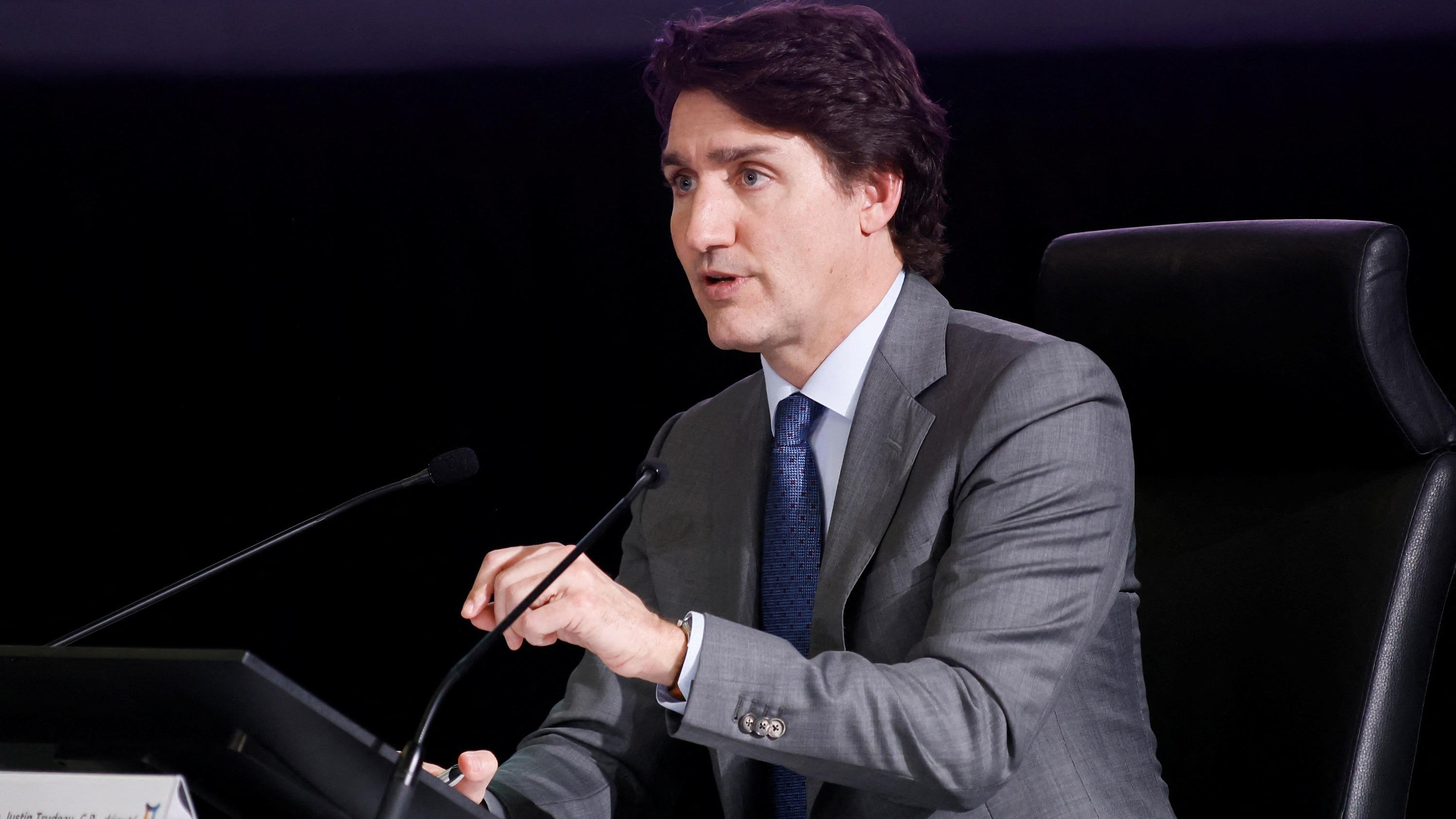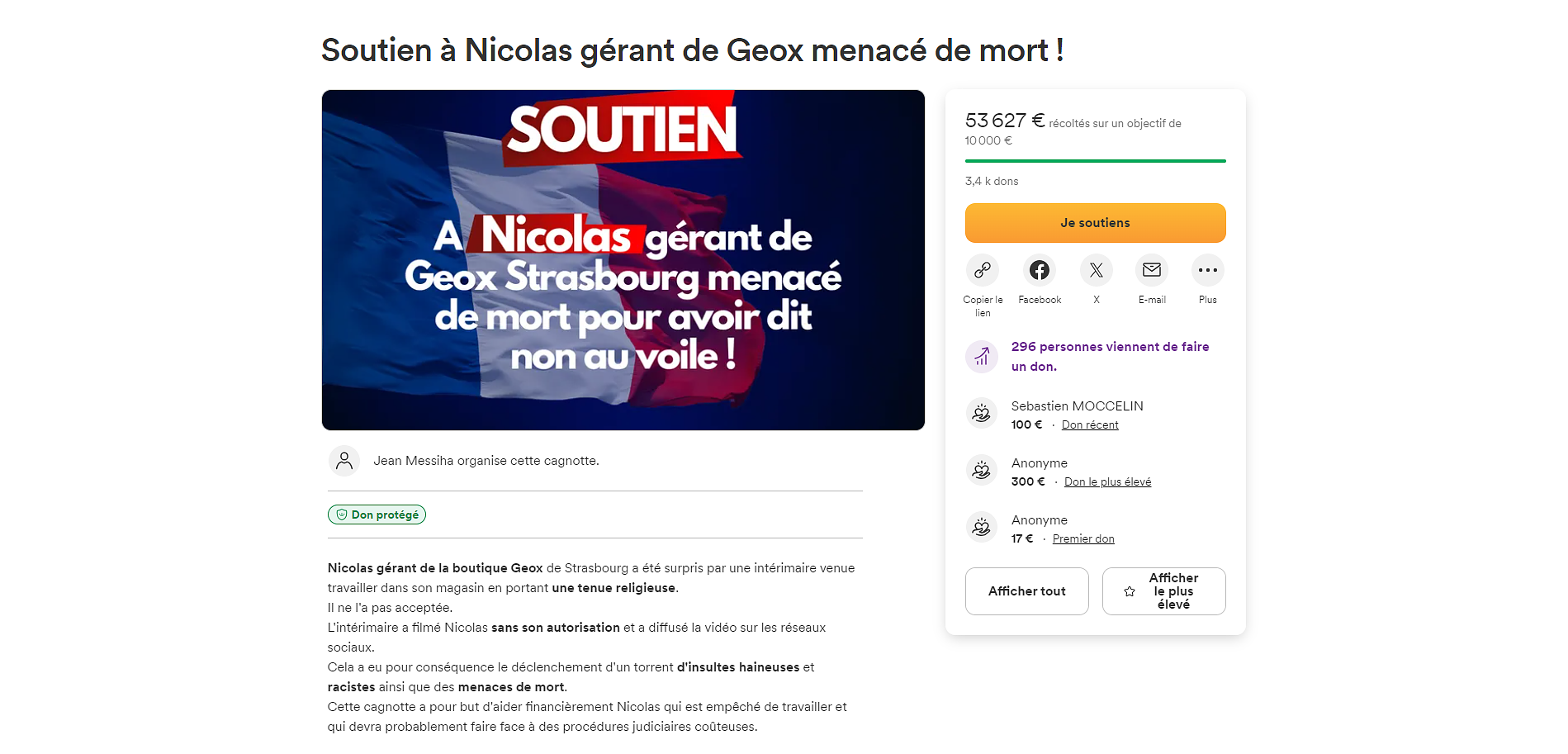With the large number of new releases and sequels on Netflix, Amazon and Co., it is easy to lose track. What's worth it? What can you leave behind? Here are our picks of the week, the most interesting scene and a confession.
"Small Axe" (ARD Mediathek)
It's been three years since one was amazed that two new films by Steve McQueen and two BBC television productions appeared in the announcement of the Cannes competition: "Mangrove" and "Lovers Rock". The pandemic prevented the festival and with it the global attention for McQueen's project "Small Axe", which consists of a total of five films, the above come "Red, White and Blue", "Alex Wheatle" and "Education". This is not a series, but five separate feature-length films, each between one and two hours long, but all of which revolve around one theme: the struggle of West Indies immigrants for their rights in a deeply racist England. The only comparable monumental film project that comes to mind is Edgar Reitz's Heimat, and although Reitz's characters are just leaving their homeland and McQueen's characters have already arrived in a new one, both are about what and how much you take with you. Hanns Georg Rodek
"The Castle" (Netflix)
The German likes to be jealous. Is it [called. He found, for example, that the Danes are much better at turning politics into television drama. And his face was a bit green. "Borgen" was (and is) almost more than "House of Cards" the yardstick that was applied to every German series that tried to make the mechanics of the intrigue around the Chancellery visible. There was no lack of attempts. Some weren't as bad as they were made out to be. The fact that they failed was possibly due to the fact that a series of Writer's Rooms fell into a deep sleep when they began to research the interior of the Merkel machine. German "borrowing" was impossible - caution: working hypothesis - because German government was undramatatically boring. So obviously boring that any drama that would have been told in a series would have been exposed as a lie immediately and by the biggest political idiot.
What we have experienced since the traffic light took office (actually also a great series title – “Traffic Light”) is a turning point. The borrowing of politics, so to speak. Finally something's going on, there's trunks, intrigues and poking through, people are disavowed. Finally there are character heads, without which there would be no good series, they even look good across the board, even the worst political paper clip (Volker Wissing!) cannot be denied charisma. Representatives of the governing parties publicly throw the forms of their political actions at each other's heads as if they were in the sandbox of the pretty pale blue parliamentary kindergarten. As a "Borgen" fan, you can't find that great enough. What is still missing are the personal dramas, the failure of people, the death of families from the poison of power. All of that can still happen. "Borgen" - which of course you can watch over and over again because it teaches everything you need to know about democracy and its enemies - had four seasons to do it. “Ampel” only manages a quarter of his term. Elmar Krekeler
"Swarm of Bees" (Amazon Prime)
"The Swarm"
The toxic fan is not such a new subject. Desireé Nosbusch drew the knife in Eckhard Schmidt's "Der Fan", Kathy Bates went to her idol Paul Sheldon in Rob Reiner's "Misery" - after Stephen King - body and soul. Dre, the heroine of the series "Bienenschwarm" (the stupid Germanization of "Swarm"), does not thirst for the closeness and blood of her idol (a pseudo-Beyoncé), but rather assassinates, and portrays it rather splatterfully, everyone who wants it dare to doubt the genius of the singing thrush (thus theoretically me too after this text). She is not alone, the ultrafan association "Schwarm" stands by her side. That sounds better than it is, because unfortunately the series deliberately artsyfarts itself in the direction of arthouse, splits the protagonist into several people, offers neither support nor tension and ultimately leads to the fact that you look away from it all without ever really to be grabbed. According to the motto: You can do it, but you can also laugh. Peter Huth
„Welcome to Chippendales“ (Disney )
The time: early eighties. The location: Los Angeles. Indian immigrant Somen “Steve” Banerjee has just founded a women-only strip bar here. The name: The Chippendales, because he liked the English style of furniture and considered it luxurious. Of course, the half-silk undressing company becomes really successful when the choreographer Nick De Noia steps in and pimps it up stylishly – as a show orgy in oiled muscles, mini-plis, rip-off undressing panties and absurd choreographies. The rest is show history.
A few years later, the jealous Banerjee had De Noja shot in New York, he later hanged himself in prison. The Chippendales are still touring though. Disney tells this weird ShowBiz fairy tale in a shimmering Eighties disco ball look in six serial episodes.
In episode three of "Welcome to Chippendales" almost all the main actors are gathered in a super weird scene: Banerjee (stubborn: Kumail Nanjiani) comes back from his father's funeral in India, outside he meets the new employee Ray Colon (Robin de Jesús), who changes the lamps and will later hire the murderer. Inside, Nick (nasty over-the-top: Murray Bartlett from "White Lotus") and his then-girlfriend Denise (continuously cocaine euphoric: Juliette Lewis) rehearse a new number in a psychedelic wrap-dress dream: "Doctor Hunkenstein", a crazy Eastern European scientist who uses the best pieces to make the superman forms.
"These are the buttocks I've been waiting for." And Steve's blonde accountant mistress Irene (Annaleigh Ashford from "Masters of Sex") rejoices to the life riffs of a rock band. Only Nick's later lover (the somewhat unhinged "Girls" boy Andrew Rannells) is still missing for the G-string group picture with a bare bottom. Manuel Brug
„Break Point“ (Netflix)
My wife is crazy about tennis. She takes coaching lessons (often twice a day) and makes me feel bad all the time because I'm playing much worse than her now. I might even be the worst tennis player ever. It's quite possible that's why I enjoy watching the documentary series "Break Point" so much. Because of the game. But mainly because of the crazy guys who are portrayed here on, next to and after the square so closely and authentically that you almost want to spray deodorant in the film room. My favorite episode is the first one - it follows Nick Kyrgios, a really crazy Australian of Greek descent, and his pal and playing partner Thanasi Kokkinakis on their way to a double win at the Australian Open. A wonderful hero's journey, a friendship story and still exciting on the third viewing. As beautiful as it can be true. But because you should play tennis instead of watching tennis, Break Point is my guilty pleasure. Peter Huth

 Rishi Sunak wants a tobacco-free UK
Rishi Sunak wants a tobacco-free UK In Africa, the number of millionaires will boom over the next ten years
In Africa, the number of millionaires will boom over the next ten years Iran's attack on Israel: these false, misleading images spreading on social networks
Iran's attack on Israel: these false, misleading images spreading on social networks Iran-Israel: David Cameron wants the G7 to impose “coordinated sanctions” on Iran
Iran-Israel: David Cameron wants the G7 to impose “coordinated sanctions” on Iran New generation mosquito nets prove much more effective against malaria
New generation mosquito nets prove much more effective against malaria Covid-19: everything you need to know about the new vaccination campaign which is starting
Covid-19: everything you need to know about the new vaccination campaign which is starting The best laptops of the moment boast artificial intelligence
The best laptops of the moment boast artificial intelligence Amazon invests 700 million in robotizing its warehouses in Europe
Amazon invests 700 million in robotizing its warehouses in Europe Solar panels: French manufacturer Systovi announces the cessation of its activities due to “Chinese dumping”
Solar panels: French manufacturer Systovi announces the cessation of its activities due to “Chinese dumping” Tesla: canceled in court, Musk's huge compensation plan will again be submitted to shareholders
Tesla: canceled in court, Musk's huge compensation plan will again be submitted to shareholders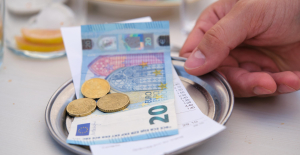 Two, three or a hundred euros: who are the most generous customers with tips?
Two, three or a hundred euros: who are the most generous customers with tips? Boeing safety examined in US Senate, after whistleblower's revelations
Boeing safety examined in US Senate, after whistleblower's revelations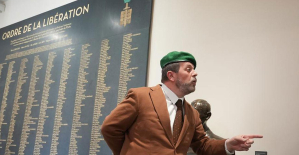 Immersion among the companions of the Liberation
Immersion among the companions of the Liberation Provence-Alpes-Côte d’Azur releases several hundred thousand euros for the promotion of the work of Marcel Pagnol
Provence-Alpes-Côte d’Azur releases several hundred thousand euros for the promotion of the work of Marcel Pagnol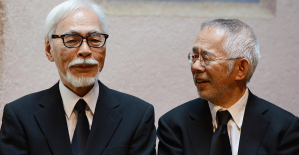 A palm of honor distinguishes Studios Ghibli for all of their work
A palm of honor distinguishes Studios Ghibli for all of their work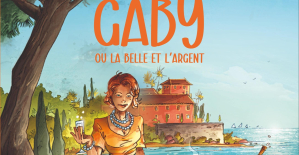 Gaby, a new play by Pagnol adapted into a comic strip
Gaby, a new play by Pagnol adapted into a comic strip Skoda Kodiaq 2024: a 'beast' plug-in hybrid SUV
Skoda Kodiaq 2024: a 'beast' plug-in hybrid SUV Tesla launches a new Model Y with 600 km of autonomy at a "more accessible price"
Tesla launches a new Model Y with 600 km of autonomy at a "more accessible price" The 10 best-selling cars in March 2024 in Spain: sales fall due to Easter
The 10 best-selling cars in March 2024 in Spain: sales fall due to Easter A private jet company buys more than 100 flying cars
A private jet company buys more than 100 flying cars This is how housing prices have changed in Spain in the last decade
This is how housing prices have changed in Spain in the last decade The home mortgage firm drops 10% in January and interest soars to 3.46%
The home mortgage firm drops 10% in January and interest soars to 3.46% The jewel of the Rocío de Nagüeles urbanization: a dream villa in Marbella
The jewel of the Rocío de Nagüeles urbanization: a dream villa in Marbella Rental prices grow by 7.3% in February: where does it go up and where does it go down?
Rental prices grow by 7.3% in February: where does it go up and where does it go down? Europeans: the schedule of debates to follow between now and June 9
Europeans: the schedule of debates to follow between now and June 9 Europeans: “In France, there is a left and there is a right,” assures Bellamy
Europeans: “In France, there is a left and there is a right,” assures Bellamy During the night of the economy, the right points out the budgetary flaws of the macronie
During the night of the economy, the right points out the budgetary flaws of the macronie Europeans: Glucksmann denounces “Emmanuel Macron’s failure” in the face of Bardella’s success
Europeans: Glucksmann denounces “Emmanuel Macron’s failure” in the face of Bardella’s success These French cities that will boycott the World Cup in Qatar
These French cities that will boycott the World Cup in Qatar Union Bordeaux Bègles-Clermont: at what time and on which channel to follow the Top 14 clash?
Union Bordeaux Bègles-Clermont: at what time and on which channel to follow the Top 14 clash? Football: Ada Hegerberg extends at OL until 2027
Football: Ada Hegerberg extends at OL until 2027 Basketball: suspended for life from NBA for fixing his match
Basketball: suspended for life from NBA for fixing his match Paris 2024 Olympic Games: boxer Estelle Mossely wants to parade on the Seine as a flag bearer
Paris 2024 Olympic Games: boxer Estelle Mossely wants to parade on the Seine as a flag bearer




